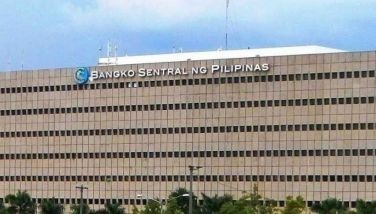No asset bubble in real estate, BSP reiterates
MANILA, Philippines - The Bangko Sentral ng Pilipinas (BSP) has reiterated there are no macro-prudential risks from the real estate market as growth in the property sector remains demand driven.
BSP Governor Amando Tetangco Jr. told participants of the 2015 Public Governance Forum organized by the Institute for Solidarity and Institute of Corporate Directors that monetary authorities continue to monitor the loans extended by banks to the property sector.
Tetangco said the BSP closely monitors the lending of banks to the property sector through a quarterly stress test.
“For real estate, we do the stress test quarterly because of the special nature of the property sector. Historically that is a source of problem. Not that we have that problem now but what we want is try to avert a potential problem in the property sector,” he said.
Tetangco explained banks have already learned from the Asian financial crisis in 1997 and 1998.
“Banks have really learned their lesson during the 1997 and 1998 Asian financial crisis. They have changed their business models,” Tetangco said.
Unlike before, Tetangco said property developers are more conservative in their construction activities.
“Right now we believe there is no asset bubble in the property sector. Basically the increase in property prices and the growth in the property sector has essentially been demand driven,” Tetangco added.
He explained the country’s business process outsourcing (BPO) sector continued to provide strong demand for office spaces, while more Filipinos are opting to live near their workplace sustaining the robust demand for condominium units.
The BSP is set to release a residential real estate price index (RREPI) later in the year since the lack of data on property prices and affordability indicators make it difficult for the debt watcher to assess the effect of credit growth on the real estate market.
As early as 2014, the BSP was contemplating on launching the index that would track property prices in Metro Manila and nearby provinces.
The monitoring would be expanded to cover other key cities in the country.
The RREPI would help the central bank in addressing concerns of a “bubble” in the country’s booming residential real estate sector brought about by the improving purchasing power of Filipinos.
The BSP stepped up its watch over the real estate sector as early as 2012 by ordering banks to disclose more comprehensive reports on their exposures to property industry.
The pre-emptive macroprudential policy measure approved by the Monetary Board required stress tests for banks to determine if their capital will be enough to absorb credit risk that may arise from their exposure to the property sector.
- Latest
- Trending




























